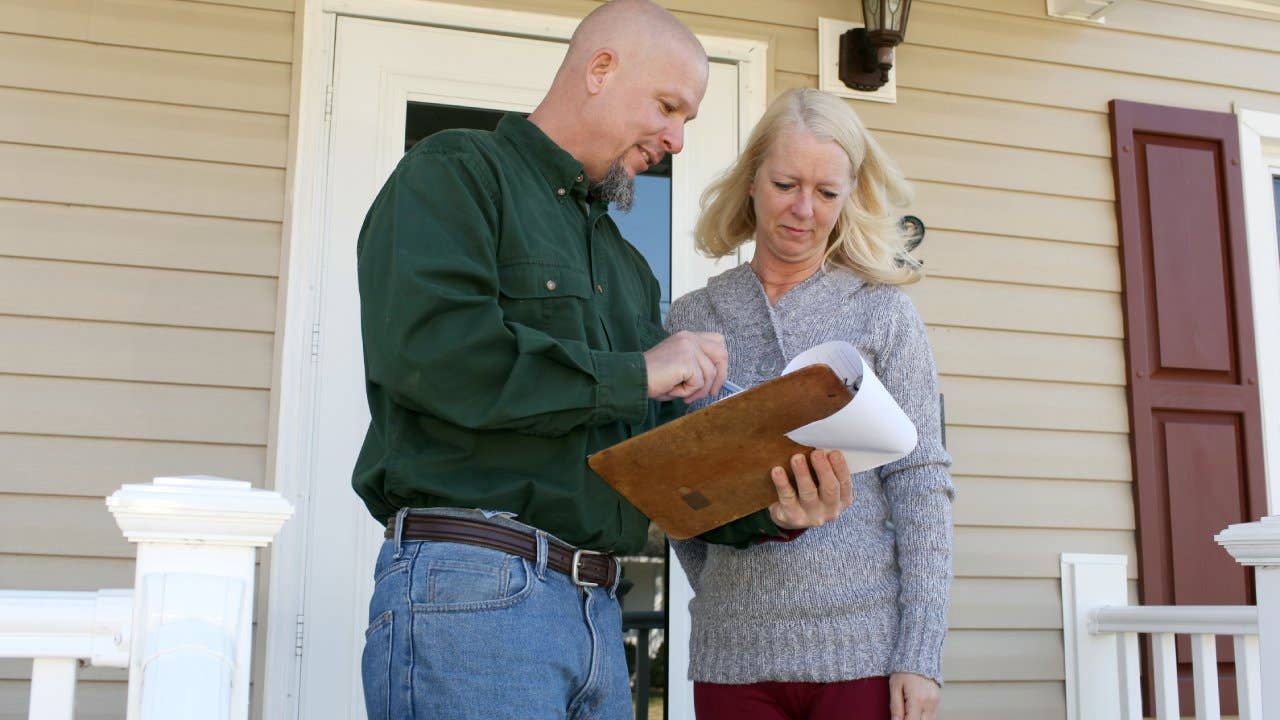Home inspections: What to know, how they work and why buyers need one

You’ve found your dream home and your offer was accepted. Let’s sign on the dotted line already, right? Not so fast. There could be expensive problems lurking just under the surface. Between old water heaters and unsealed windows to broken chimneys and insect damage, many homes go on the market with a long to-do list.
Thankfully, one standard bit of operating procedure during the home sale process is to have a home inspection. If you’re financing the purchase, in fact, your lender might encourage you to commission one; sellers often expect you to request one. This comprehensive evaluation of a property can reveal many issues before your real estate deal is finalized. Even better, you can include an inspection contingency in your offer that allows you to cancel the deal without penalty if the inspection reveals major problems.
Let’s talk about what is covered during a typical home inspection: what they are, how they work, and how much they cost. And of course, why buyers need one — and why sellers may want to get their own inspection, too.
What is a home inspection?
A home inspection is a detailed evaluation of a property by an independent party — that is, a qualified individual who is affiliated with neither the buyer nor the seller, and has no interest in the transaction.
The home inspector is a trained professional, who examines the major structural features in the home, evaluating them for their condition. An inspection looks at a variety of components and systems, from obvious signs of water damage and broken electrical parts to more subtle problems, like cracks in a foundation.
Home inspections are important for a few reasons. First and foremost, you should always know what you’re buying. If you don’t get an inspection you could end up with a major roof leak during the first rain storm — and never see it coming.
Inspections can also save you money. Buyers can ask sellers to cover the cost of any required repairs or to knock off an equivalent amount in the purchase price. According to a Porch.com survey of 1,000 homebuyers, information discovered during the inspection resulted in negotiations that saved buyers an average of $14,000 on the final purchase price.
Sometimes lenders require an inspection before they will approve your mortgage. You may also need to present the results of a home inspection to obtain home insurance.
How does a home inspection work?
“A home inspection is typically ordered by the buyer,” Nick Gromicko, founder of the International Association of Certified Home Inspectors (InterNACHI) says. The home inspector looks at all the systems and components of the home and generates a report with full-color images of anything the buyer should be alerted to.”
Your home inspection will cover the following (and maybe more, depending on the unique characteristics of the home in question):
- Foundation
- Stucco/siding
- Exterior paint
- Rain gutters
- Electrical panels
- Electrical outlets and switches
- HVAC systems
- Plumbing fixtures
- Railings and stairs
- Appliances
- Ceilings and floors
- Windows and doors
Like most services, the cost of home inspections varies across the country. According to Porch.com, most people pay between $300-$500 for an inspection. No matter where you live, your real estate agent will probably have a list of home inspectors that they’ve worked with before, though some authorities recommend getting one on your own.You can find a home inspector by referral or using a simple online search for inspectors in your area.
Should you buy a home without a home inspection?
No. It’s typically not wise to waive a home inspection — though, during the frantic real estate market of the last two years, many buyers did, in an effort to make their offers more competitive and to hasten the closing process.
Unless you’re desperate for the home or willing to buy a house as-is, it’s a bad idea, though. You should never purchase a home without knowing exactly what you’re getting into, especially if you need to move in right away and plan on making the home your primary residence. It’s also crucial if you’re buying the house sight-unseen. Given the nominal cost of an inspection and the negotiating leverage it offers, there isn’t a reason to skip this step.
Home inspections are usually scheduled after you sign your purchase and sale agreement with the seller, usually to occur within a few weeks. Make sure to include a home inspection contingency clause in your purchase and sale agreement that makes it clear you won’t move forward with the closing if you’re dissatisfied with the contents of the inspector’s report or the issues in it aren’t addressed.
Common things that fail a home inspection
Often, the problems uncovered by a home inspection get addressed by the seller agreeing to make repairs, or to compensate the buyer for the cost of them (either directly or by lowering the home price). But in some extreme cases, they can be so severe that they actually delay or cancel the home sale.
According to Gromicko, most of the home defects that cause a real estate deal to fall apart have to do with water — water damage, that is. He says roof and foundation leaks are among the most common reasons a home inspection leads to a canceled contract. These issues are serious and expensive, costing four to five figures to repair. And you may not notice them without a professional evaluation.
Home inspections for sellers
Most of the time an inspection takes place, the buyer has ordered it and paid for it. However, sellers may want to consider commissioning a pre-listing inspection of their own.
There are several reasons for a seller to get an inspection before they entertain any offers. “You won’t be in for any surprises when a potential buyer does a home inspection on your property. It may also alert you to any immediate concerns, such as a broken pressure-relief valve or an active termite infestation,” notes Gromicko. “A seller inspection also allows you to take the time to shop for competitively priced contractors to make repairs, rather than making rushed decisions to get things fixed in a hurry so you can appease a buyer later.”
And of course, by determining the condition of the house, an inspection can help set a purchase price/selling strategy. A home inspection can be especially useful if you inherit a property, to enable you to decide if you want to fix it up before putting it on the market or sell it as-is.
Sellers can attach their repair estimates or paid invoices to their inspection report and hand it over to the potential buyer. This may stave off some requests for credits during the negotiating process. Doing your own inspection also protects you legally, especially in states with tight full-disclosure laws.
FAQs
-
If the seller orders the inspection, they may be present. They are typically not welcome at a buyer’s inspection because they may interfere with the process. An inspector needs to be able to speak frankly about the problems with the property and take unflattering photos of any issues or poorly maintained components.
-
Yes, buyers can follow their inspector around the property. This presents an opportunity for the inspector to show the potential buyer exactly where something is damaged or explain how certain systems work.
-
Homebuyers generally pay for both of these evaluations, though they serve different purposes. A home inspector looks at everything in the home to see whether it functions as intended. A home appraiser inspects a home more for its general features to determine its overall value, especially in comparison to other nearby homes that have recently sold.
-
If an inspector finds something wrong with a home, they will include it in their report; the most thorough attach color photos and sometimes even videos. As a buyer, you then have several options, depending on the nature and severity of the issues. You can pull your offer if you want (assuming your contract’s contingency clause allows this). You can lower your offer to leave you with some cash to complete the repairs, or ask for some other form of compensation/credit. Finally, you can request that the seller complete the repairs.
Why we ask for feedback Your feedback helps us improve our content and services. It takes less than a minute to complete.
Your responses are anonymous and will only be used for improving our website.
You may also like

We Buy Houses review: What it is, how it works

5 key tips for buying a fixer-upper

Buying a home as-is: The pros and cons



